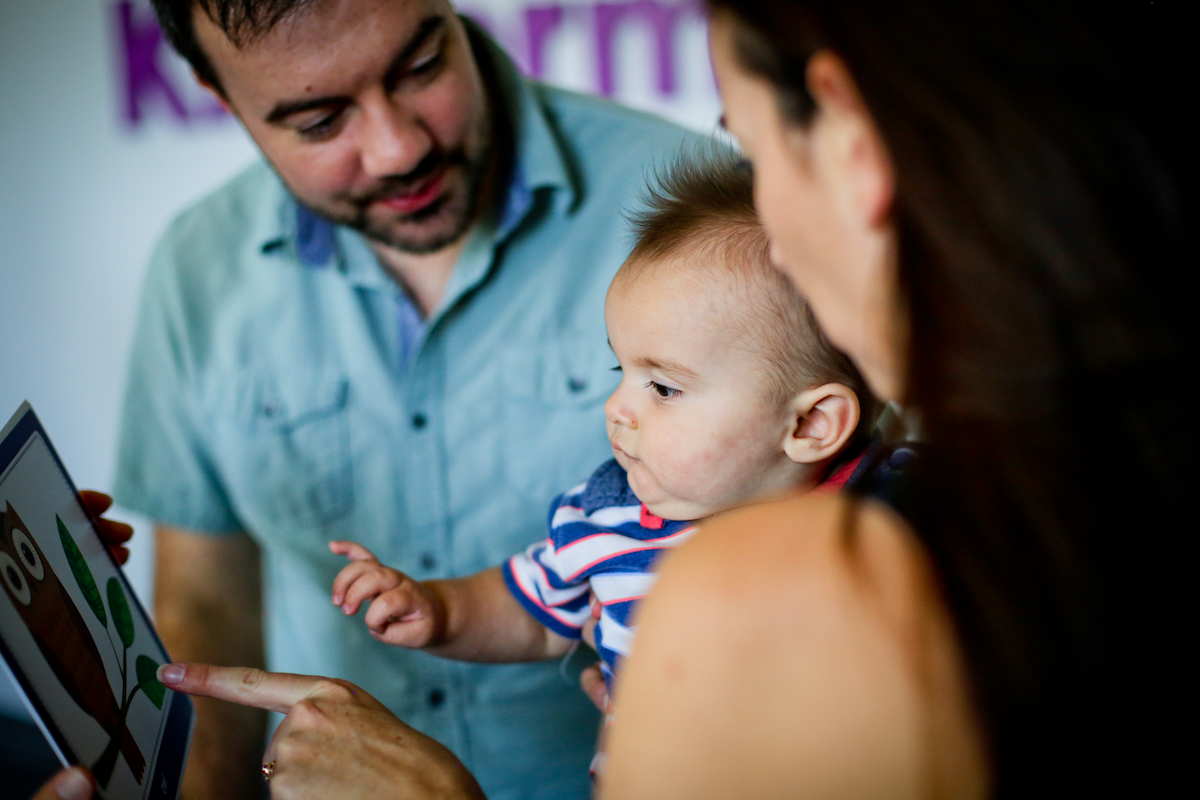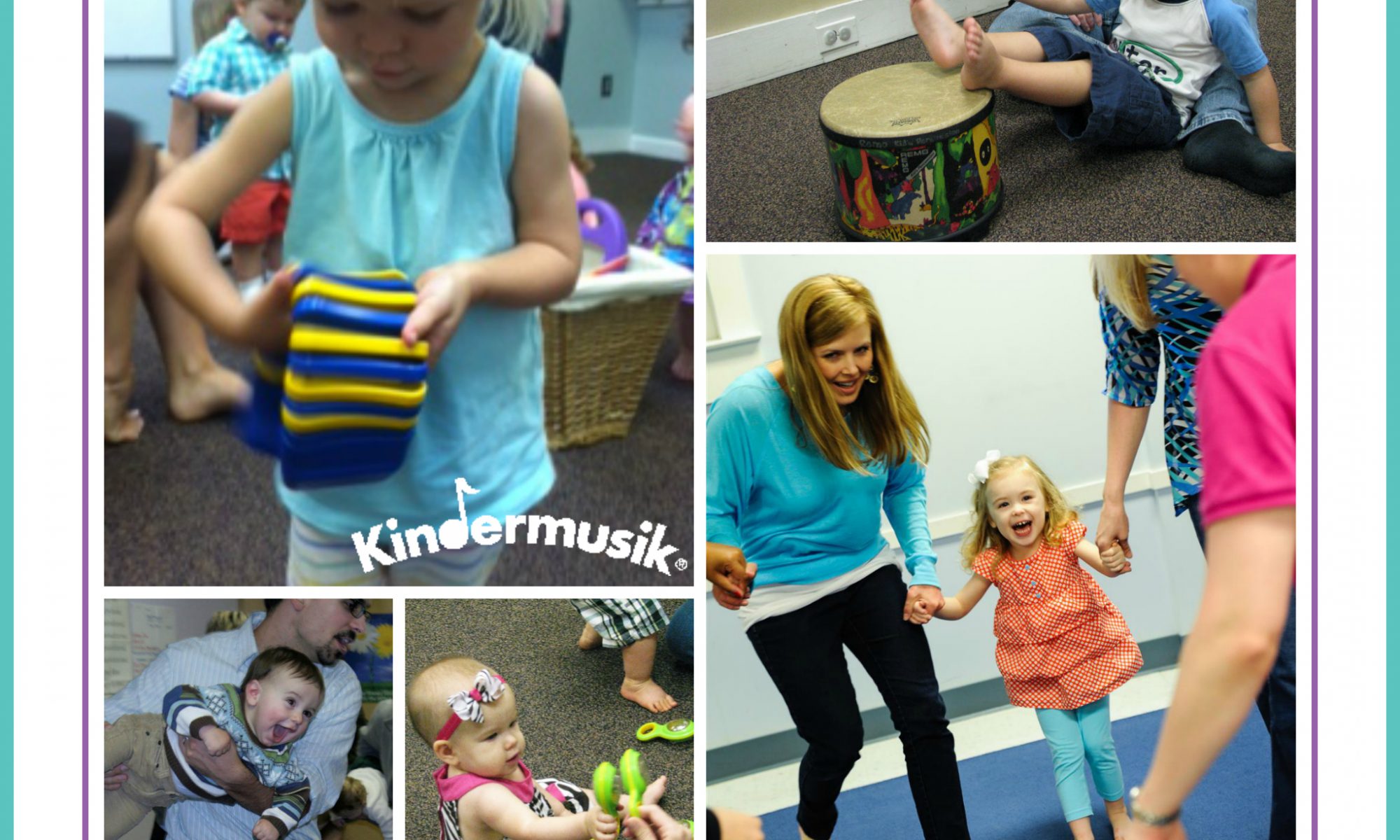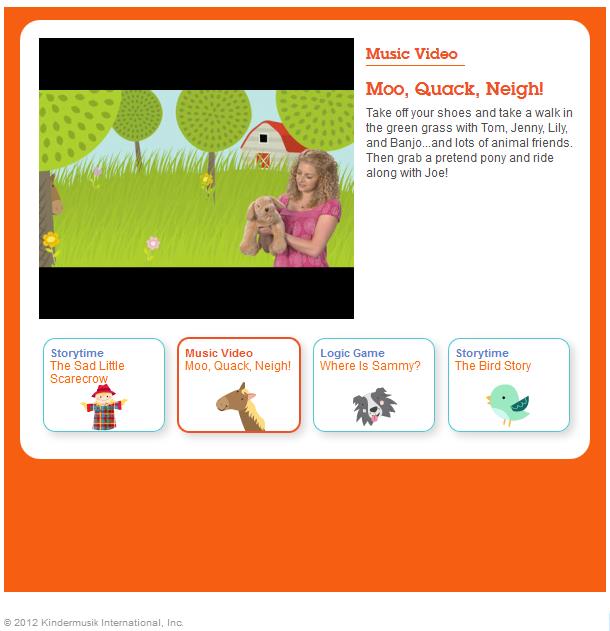Pediatricians will often recommend music classes for children with language delays. Speech therapists regularly incorporate music and rhymes in their therapy sessions with young children. Researchers have identified talking and singing with a small child as one of the most effective tools for closing the word gap with under-served populations.
 Here are six music activities that support early language development – all six are favorites of our Kindermusik parents in class and at home:
Here are six music activities that support early language development – all six are favorites of our Kindermusik parents in class and at home:
Vocal Play – “Bah-bah-bah.” (pause)
Conversational back-and-forth play with parts of words, whole words, parts of songs, and short rhythms gives mouth muscles practice forming syllables and words.
Nursery Rhymes – “Hey diddle-diddle, the cat and the fiddle.“
Nursery Rhymes are not only rich with the sounds that vowels and consonants make, they are also catchy and repeatable.
Timbre – Scritch-scratch, tap-tap, jingle!
Hearing and labeling the very different and distinct sounds of instruments expands listening skills and enriches vocabulary.
Movement labels – Gallop, skip, twist, twirl!
Simultaneously moving and labeling the movements engages the brain with the body and grows a bigger vocabulary.
Steady beat – “ta – ta – ta – ta and stomp-stomp-stomp-stomp!”
Recent studies have found a close link between rhythmic skills and language skills. So the more you dance, march, and play-along with music, the stronger your music and language skills will be.
Instrument Exploration – “Can you say guiro? It goes ritch-ratch, ritch-ratch.”
Exploring and labeling instruments and their sounds in a relaxed, non-structured time of instrument exploration provides another perfect opportunity to practice and repeat sounds and words that we don’t always use every day.
So go ahead. Sing, chant, listen, label, move, and explore your way through your day with your child. You’ll be amazed at how a little bit of music and some musical activities here and there each day will enhance his or her language development!
 Learn more about how Kindermusik can give you the inspiration you need for improving your child’s language development at www.Kindermusik.com or by clicking on the buttons to the right.
Learn more about how Kindermusik can give you the inspiration you need for improving your child’s language development at www.Kindermusik.com or by clicking on the buttons to the right.



 Here are six music activities that support early language development – all six are favorites of our Kindermusik parents in class and at home:
Here are six music activities that support early language development – all six are favorites of our Kindermusik parents in class and at home: Learn more about how Kindermusik can give you the inspiration you need for improving your child’s language development at
Learn more about how Kindermusik can give you the inspiration you need for improving your child’s language development at 
